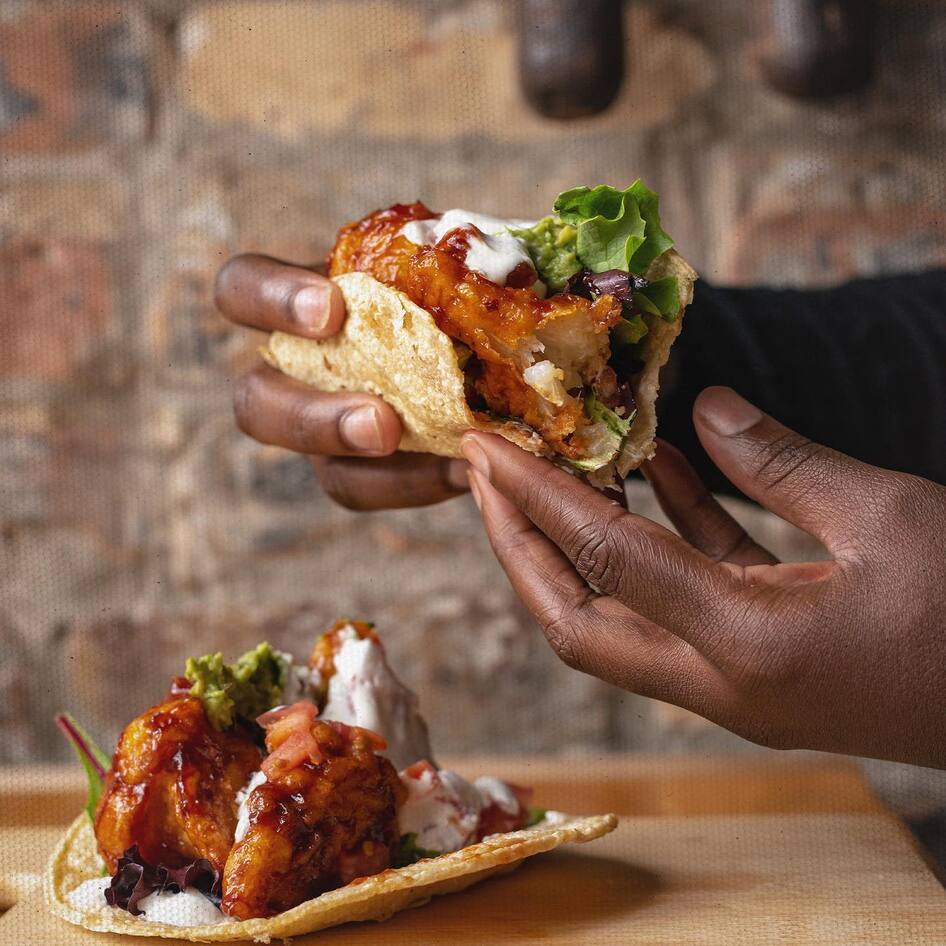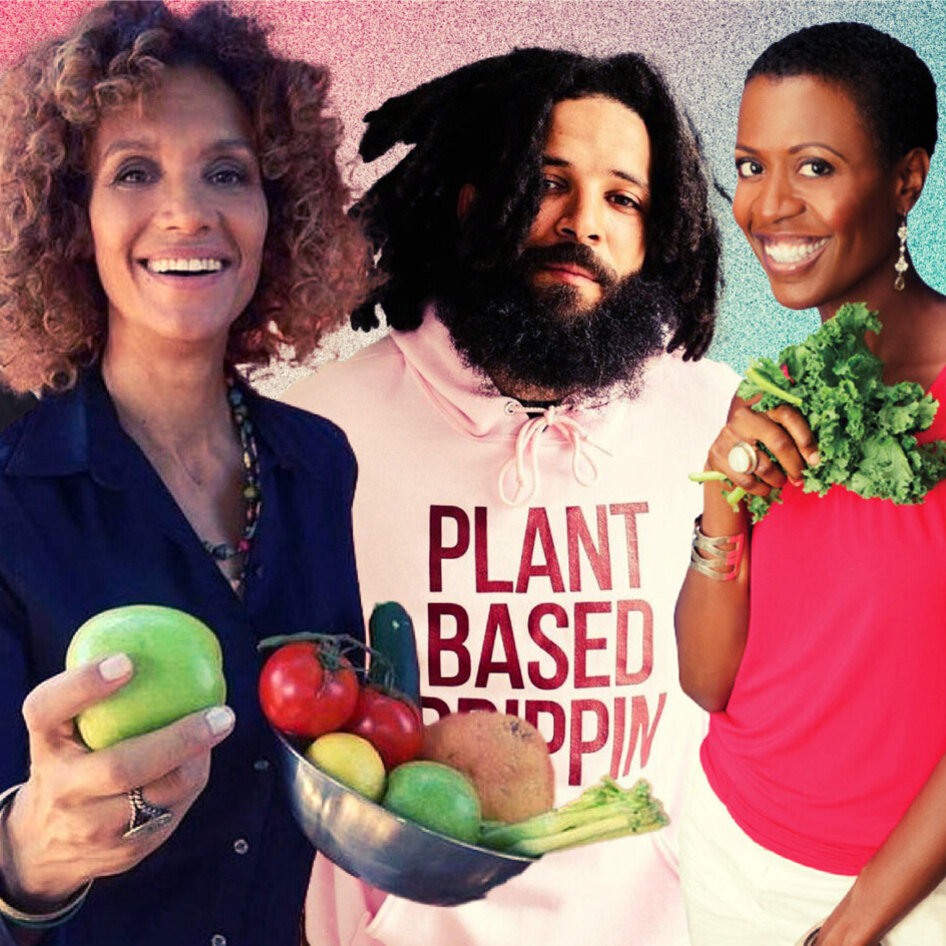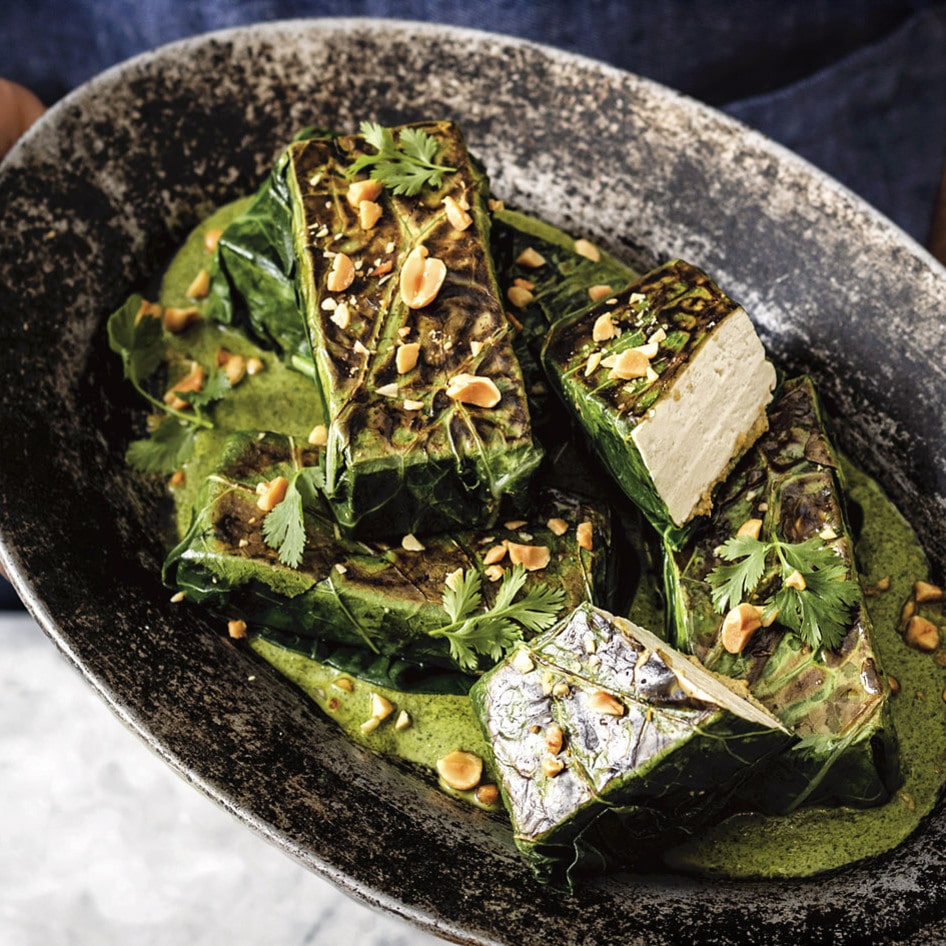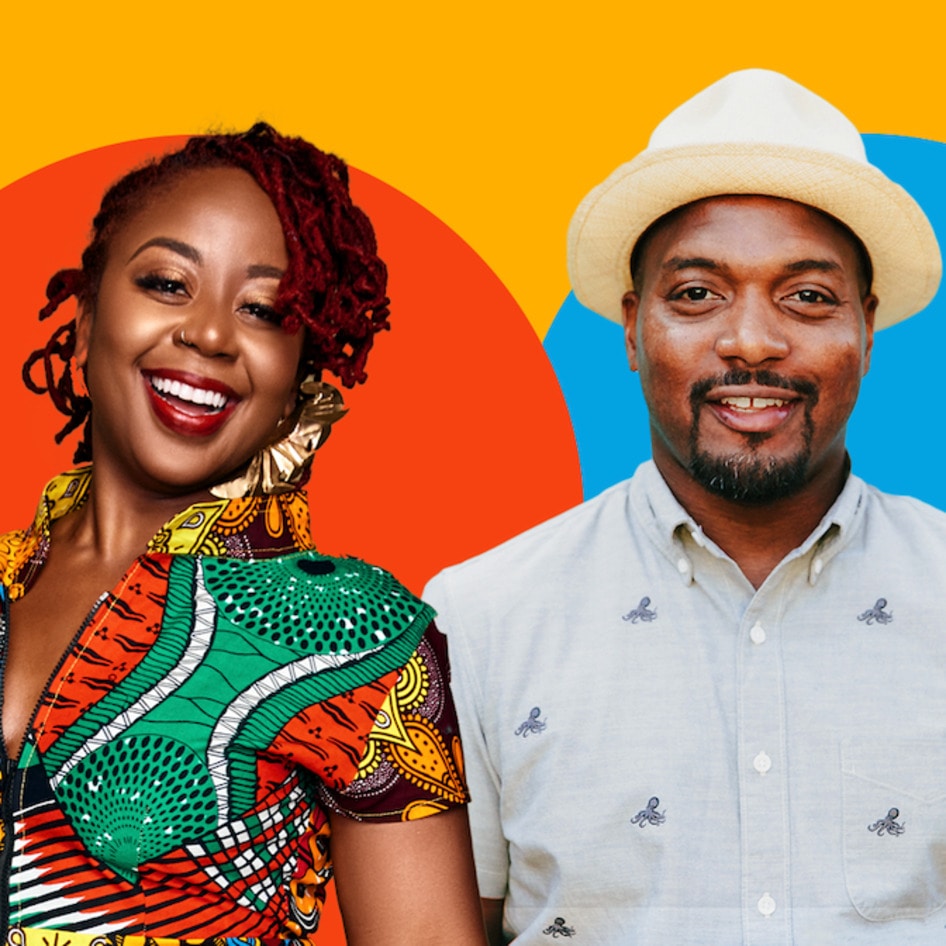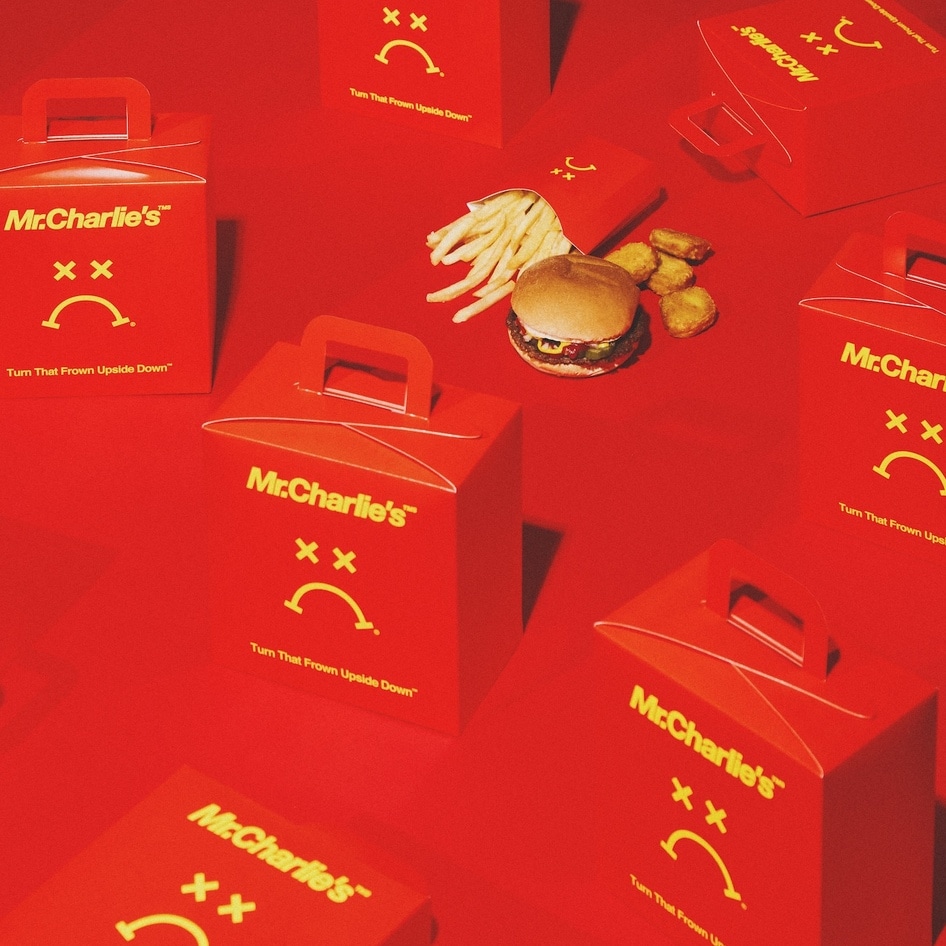VegNews Celebrates Black History Month: Tracye McQuirter
In this exclusive interview with VegNews, famed author and nutritionist Tracye McQuirter discusses the black pioneers of the vegan movement.
February 2, 2016
Abstaining from the use of animals for food, clothing, entertainment, or for research has always been portrayed as a radical way of living. Those who live their lives by such principles find themselves part of a small but passionate minority, using their everyday choices to advocate and fight for the rights of animals. But some members of this plant-based group don’t have the luxury of making animal rights the center of their lives—they must, at the same time, continue fighting for their own.
One such subsect is black vegans. While not receiving the same amount of attention as other members of the plant-based scene, the black community has made, and continues to make, meaningful and important strides in the name of veganism. From the iconic political activist Angela Y. Davis’ work stemming back to the 60s, to David Carter showing the world that a 300-pound NFL lineman can be sustained, and thrive, on a vegan diet—we’re inspired by the accomplishments of black vegans.
Every week during February, VegNews is highlighting one black vegan making history now. For our first installment, we’re featuring Tracye McQuirter, a 30-year vegan, author, public health nutritionist, and international speaker. McQuirter is the author of the best-selling By Any Greens Necessary and also co-founded BlackVegetarians.org, the first vegan website by and for African Americans, and has helped approximately three million black people go vegan and vegetarian.
VegNews: Who has inspired you to want to change the way America eats?
Tracye McQuirter: When I was a sophomore at Amherst College, our Black Student Union brought Dick Gregory to campus to talk about the political, economic, and social state of black America. Instead, he talked about the plate of black America and how unhealthily most folks eat. This was in 1986, and we didn’t know that Gregory had become a nutrition guru. We only knew him as a Civil Rights icon and comedian. What grabbed me was when he started to trace—graphically—the path of a hamburger from a cow on a factory farm, through the slaughterhouse process, to a fast-food restaurant, to a clogged artery, to a heart attack. I had never heard anything like that before.
At the time I was taking a lot of political science and African American studies classes, and I was learning about imperialism, racism, sexism, heterosexism, and classism for the first time or in new ways, and it was changing my awareness and sense of self. And it was with this new consciousness that I listened to Gregory’s lecture. Afterward, I discovered there was a large and thriving community of black vegetarians and vegans in my hometown of Washington, DC, who had started the first all-vegan health food stores and cafés in the nation’s capital in the 1980s, many of them influenced by their involvement in the Civil Rights and Black Liberation Movements. I immersed myself in this community by taking cooking classes, attending lectures, going grocery shopping, asking hundreds of questions, and getting mentored.
VN: As a 30-year vegan, where do you think the movement is now, and where do you think we need to go?
TM: The US is approaching a tipping point when it comes to veganism. As of 2012, an estimated three million African Americans were vegetarians. Overall, there are an estimated eight million vegetarians and eight million vegans in the US (a combined five percent of the population), with another 100 million people (one-third of the population) who say they eat plant-based food a significant amount of time. And 12 percent of millennials are committed vegetarians. In fact, you’d be hard-pressed to find anyone in this country who says they’re eating more meat. Nowadays, when you tell someone you’re vegan or vegetarian, at some point in the conversation—after the protein question—they usually say, “I don’t eat that much meat.” The shift in consciousness is happening.
VN: A lack of representation in the mainstream vegan movement is an ongoing theme in many discussions being had in the black vegan community. Others talk about inadequate access to information and fresh, whole foods among certain communities in the nation. What do you make of these issues?
TM: First, I center myself in my own life, so any stream I swim in is the mainstream. Second, I entered veganism 30 years ago through black people, so my being vegan is founded on blackness. Third, black people are pioneers in the plant-based food movement in this country.
There’s Alvenia Fulton, a naturopathic physician who opened the first health food establishment on the south side of Chicago in the 1950s. She went on to influence Dick Gregory to change his diet, and she co-wrote his plant-based classic, Cooking with Mother Nature, in 1974. The longest-running raw vegan restaurant in the country is owned by Karen Calabrese in Chicago, and the father of gourmet raw vegan cuisine is Aris LaTham from Panama. And Soul Vegetarian restaurants were—until recently—the largest chain of vegan restaurants in the world.
That said, we still have a long way to go. We’re experiencing an enormous health crisis based on the unhealthful food the majority of us is still eating. It’s important to know that just as there were more than 300 extrajudicial killings of black people reported in 2012, there were more than 300,000 preventable deaths of black people in 2010 caused by diet-related chronic diseases.
This is not a comparison game, but a reminder that unhealthful diets are a social justice and human rights issue as well, since there are state-sanctioned reasons that low-income African Americans, in particular, do not have access to healthful foods. That said, we don’t want to be active participants in our genocide. I see a day coming soon when thousands more people will be actively organizing around #blackhealthmatters AND #blacklivesmatter.
Also, to the question about the white vegan movement: the fact that white vegan organizations and conferences historically and currently exclude, exploit, and/or tokenize black vegans is yet another example of systemic white supremacy in this country. And it’s an injustice that black people have been and will continue to be organizing against. But it’s important to be mindful in the language we use and in our own understanding that black vegan spaces have existed and will continue to exist for generations for our own purposes—and not in reaction to white spaces.
To find out more about Tracye’s work and her book, By Any Greens Necessary, visit her website, and connect with her on Facebook, Twitter, and Instagram.
Catch our other Black History Month interviews with Eugene Cooke, Dr. A Breeze Harper, Clifton Roberts, and Bryant Terry.
JUMP TO ... Latest News | Recipes | Guides | Health | Subscribe
Photo courtesy of A Little Bit of Whimsy Photography

